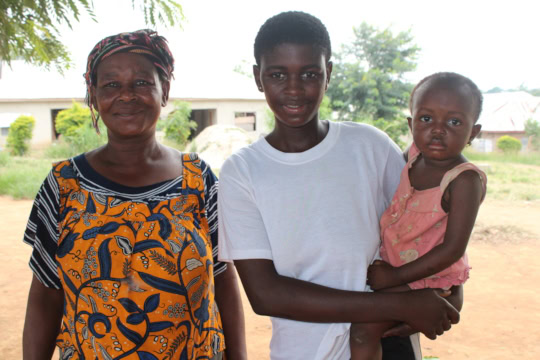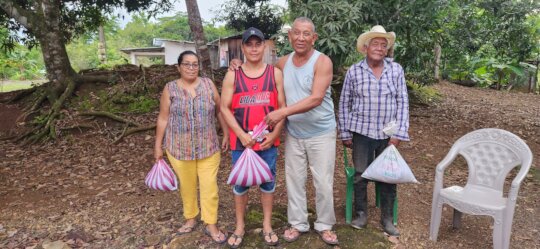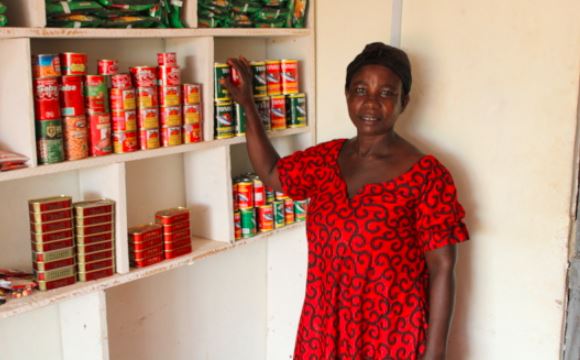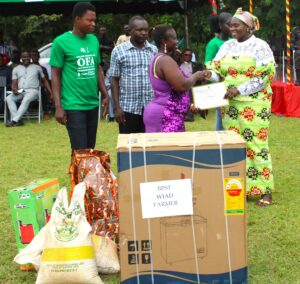Training Center offers women’s health classes

Staff from the health center lead the session
Self-Help International’s (SHI) Fred Strohbehn Training Center in Nicaragua offered women’s health sessions to 84 beneficiaries from the women’s micro-credit program. The session was offered over a two-day period and women were invited to attend one of the two sessions held on either Nov. 26 or 27, 2014.
The women’s health days were made possible in partnership with the Ministry of Health (MINSA). One gynecologist and one nurse from the nearby Quinta Lidia Health Center led the training sessions with the purpose of helping the women understand the importance of maintaining their health, and learning how to do periodic self-exams to detect potential health issues and cancer.
Session One: Nov. 26, 2014
Fourteen beneficiaries from the communities of Las Azucenas, Quinta Lidia, Melchorita and Santa Isabel attended the first day training session. The gynecologist started by explaining the importance of the women’s role in their families and homes, with particular emphasis on the importance of maintaining their own health in order to be in a position to take good care of their loved ones.
After the education portion of the training, the doctor explained the importance of having a routine physical exam including a pap smear and mammogram to screen for cancer or pre-cancerous cells. The doctor also showed the women how to do a routine self-exam in the privacy of their own homes to screen themselves for breast cancer. To ensure that attendees fully understood the information being shared, the doctor asked each woman to stand in front of the group and explain in her own words what she had learned from the doctor and to demonstrate how she would conduct the self-exam in the privacy of her own home.
During this process, Self-Help staff found that some of the women were still unsure, so the doctor explained it one more time to make sure all of them fully understood the training and could implement it at home.
At the end of the session, several beneficiaries requested to have the examination right away and take advantage of the opportunity while the doctor was present. The gynecologist examined each of the 14 women individually. After examination, some of the women were immediately referred to the San Carlos Hospital to have ultrasounds to further evaluate masses found or any other type of diseases, demonstrating the need for this training session.
Session Two: Nov. 27, 2014
On the second training day, 13 women attended from the communities of Cruz Verde and El Empalme de Cruz Verde. The gynecologist and the nurse assistant conducted the same training as the first day. After making sure that all the women fully understood the importance of maintaining their health and how to conduct home exams, the doctor offered breast exams to each one of the women present. Similar to the day before, some of the women were also referred to the San Carlos Hospital for further evaluation.
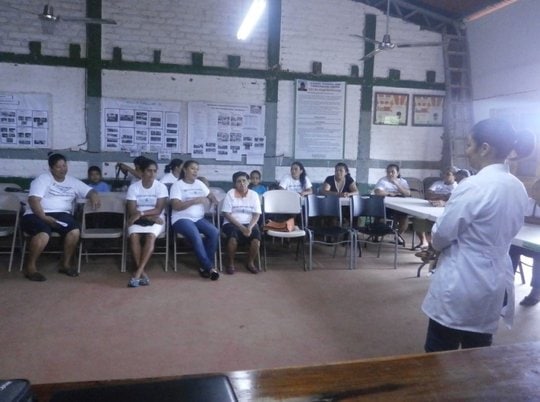
Women learn the importance of health exams
Women from both sessions said they were really thankful and happy to have this type of training organized by Self-Help International and the Ministry of Health. One of the women even said that out of all the training she has received from Self-Help International, this training was the one she liked most because now she understands that the organization really cares about them as human beings. She explained that economic concerns regarding poverty are very important, but the health education means even more to beneficiaries. Attendees said they are thankful for Self-Help International staff for providing this program, training, and skills.
Since the health class was held at the Fred Strohbehn Training Center, the women were able to come to the classes with confidence and comfort because they are familiar with the organization and feel a part of Self-Help. This level of trust is important because the women are hesitant and uncomfortable getting exams with people they aren’t familiar with, so they said they would not have gone to screenings otherwise.
Unfortunately beneficiaries from Laurel Galan were unable to attend because most of the women are teachers and were working during the first two sessions. SHI staff continued these training sessions into 2015 and beyond to account for those who were unable to attend.

